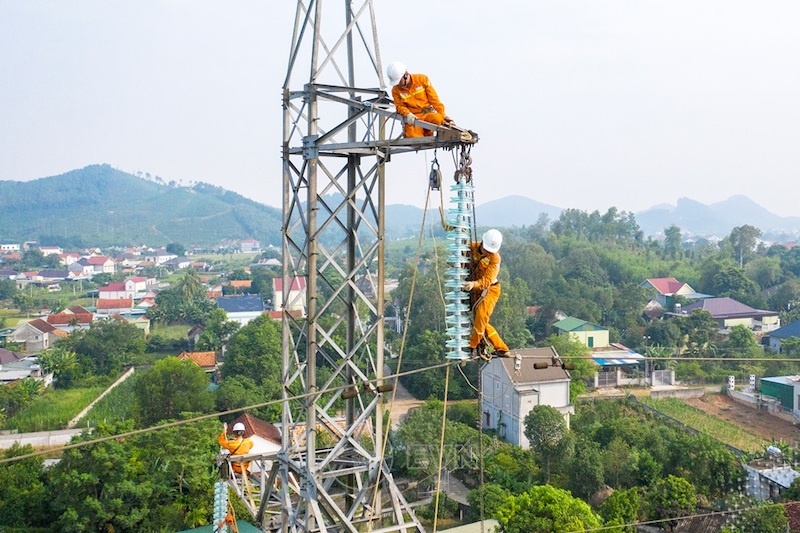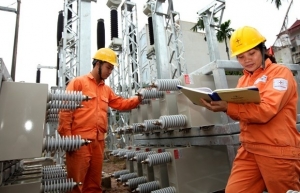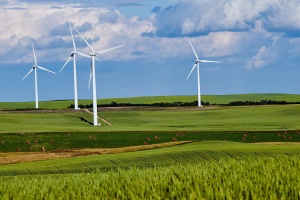Implementation strategy for new power development plan approved
 |
Decision No. 262/QD-TTg dated April 1 includes a status update on the 13 imported liquefied natural gas-fired (LNG) power projects and 10 domestic gas-fired power projects which are earmarked for completion by 2030 under the PDP8 to achieve a total imported LNG capacity of 22,400MW and a total domestic gas capacity of 14,930MW.
The decision also sets out that the country's total offshore wind power capacity will be expected to be 6,000MW by 2030, with onshore wind power at 21,880MW, biomass power at 1,088MW, waste-to-energy power at 1,182MW, additional rooftop solar power at 2,600MW, and battery storage at 300MW.
Vietnam is expected to develop 300MW of flexible power sources, and priority has been given to areas with potential capacity shortages.
Vietnam also plans to import about 5,000MW of electricity from Laos, which could increase to 8,000MW subject to improvements and reasonable electricity prices.
Meanwhile, the central and southern regions hold the potential to export power overseas ranging from 5,000MW to 10,000MW when feasible projects emerge.
Renewable energy will be used to produce new types of energy such as green hydrogen and green ammonia for the domestic market and exports, with a planned capacity of 5,000MW by 2030.
Many rural, mountainous, and island areas of the country remain off-grid, and Decision 262 is part of the government’s plan to extend power supply to these historically under-served regions. The aim is to connect over 910,000 homes in almost 15,000 villages to the national grid or renewable energy projects.
Under the implementation plan, Vietnam will build two interregional industrial and service centres for renewable energy in the northern and central-southern regions. The move aims to develop an industrial ecosystem for renewable energy services.
The country also supplies power to almost 2,500 small- and medium-sized water pumping stations across 13 Mekong Delta cities and provinces.
 | Vietnam’s impressive vision for a cleaner energy future Vietnam’s power development plan outlines a comprehensive energy blueprint for the country. Mishra Kumar Sameer, director of Deals Advisory for KPMG in Vietnam, explains how a diversified energy mix with supporting infrastructure will be crucial in meeting environmental commitments and energy security. |
 | Detailed implementation will direct success of PDP8 Emphasis is being made that the implementation of the nation’s power plan for the decade and beyond will not be successful without a detailed plan and clear investor selection process. |
 | Vietnam explores renewable energy export strategy On December 23, Vietnam's Deputy Prime Minister Tran Hong Ha tasked the Ministry of Industry and Trade (MoIT) with developing a framework to explore wind and solar energy. |
What the stars mean:
★ Poor ★ ★ Promising ★★★ Good ★★★★ Very good ★★★★★ Exceptional
Related Contents
Latest News
More News
- Hermes joins Long Thanh cargo terminal development (February 04, 2026 | 15:59)
- SCG enhances production and distribution in Vietnam (February 04, 2026 | 08:00)
- UNIVACCO strengthens Asia expansion with Vietnam facility (February 03, 2026 | 08:00)
- Cai Mep Ha Port project wins approval with $1.95bn investment (February 02, 2026 | 16:17)
- Repositioning Vietnam in Asia’s manufacturing race (February 02, 2026 | 16:00)
- Manufacturing growth remains solid in early 2026 (February 02, 2026 | 15:28)
- Navigating venture capital trends across the continent (February 02, 2026 | 14:00)
- Motivations to achieve high growth (February 02, 2026 | 11:00)
- Capacity and regulations among British areas of expertise in IFCs (February 02, 2026 | 09:09)
- Transition underway in German investment across Vietnam (February 02, 2026 | 08:00)

 Tag:
Tag:




















 Mobile Version
Mobile Version